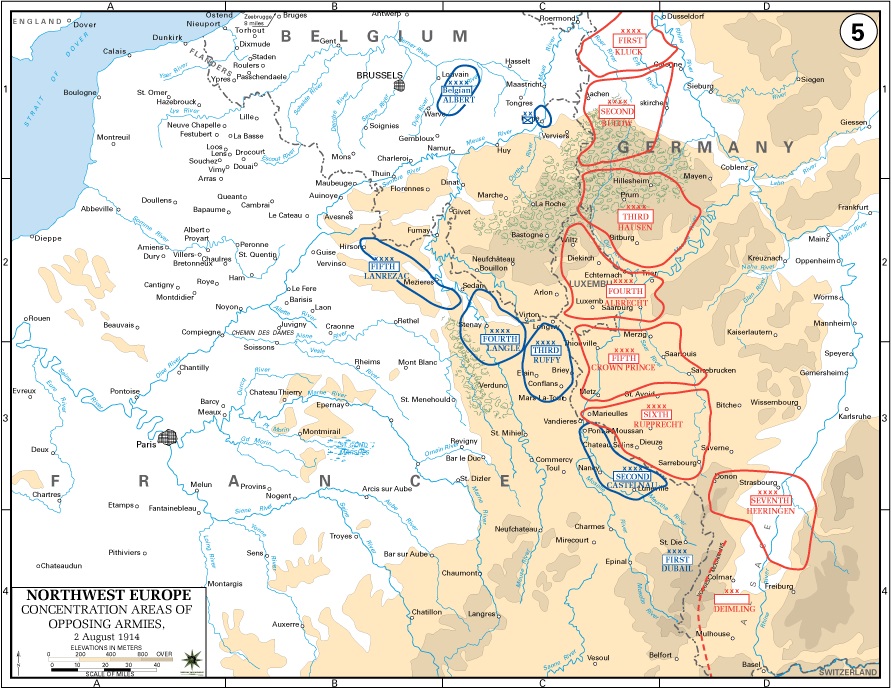Mobilization was part of it, a big part was losing the initiative and being forced on the defensive thanks in part to the timidity of their commanders except when it was too late and they tried some Hail Mary moves.
That was the basis of Foch's offensive doctrine that officially took over by 1911, but was already an unofficial doctrine among the many students of Foch working their way through command positions.
As you say the delay in mobilization and poor overall leadership meant they lost the initiative and were defeated in detail before they could concentrate their forces. Coupled with losing a large part of the army and its political leadership by having it withdraw into a fort where it was isolated.
What do you think would happen if they pulled troops out of there early on to move further north in 1914? They'd free up substantial German forces to reinforce the right wing if they changed their war plan; the German war plan was based on the French attacking in A-L, so they extra weighted forces in the region. Without the French planning to attack there the Germans would free up extra forces to support the main advance.
Lets see
a) The German plan wasn't based on the French launching counter attacks in A-L. It was based on bypassing the French fortresses and kill zones set up in the south which the Germans rightly considered too formidable to try and force their way through.
b) Assuming that the Germans would know of such a change to the French plan in advance they couldn't really switch more forces to the right wing. It already contained a large majority of the available forces, so much so that finding room for additional units in the north would have been difficult. Not to mention this would have had to been done in advance of the German attack/dow as that was so rigidly regimented. The French did manage to move forces from their mangled right to defend on the Marne OTL simply because they effectively had interior lines.
c) As I point out attacking in fairly open terrain is a lot easier than against a heavily fortified position.
The French war plan was based on the idea that they could pre-empt the German advance, much like you said the German did to them in 1870, and force them to react to the French moves and be wrong footed, especially in combination with the Russian advance in East Prussia. It made sense at the time, but in retrospect defensive technology and the terrain made it unworkable given the radical massing of forces against Belgium and France the Germans did and left East Prussia heavily under resourced, which was not planned on AFAIK.
From what I've read was that the French intention was to break through and isolate the heavy German right from its own supply lines. As such they relied on the bulk of the German forces being committed to an invasion of Belgium. Of course this needed two conditions:
a) That their forces could actually break through the heavily fortified German defences.
b) That the very weak French left could hold.
Both were actually ignored by Joffe and his supporters. Poassibly he could have some excuse for the 2nd part as there was an expectation that the Belgians would hold at Liege longer but the failure to actually think things through on the 1st was extremely stupid.
They had help from the BEF, though the French weren't prepared for them to run away like they did at Mons and later on. The French actually did quite well fighting defensively, so I don't know what unauthorized counterattacks you're talking about.
They faced two problems from what I've read. That they set up on the river line rather than the heights behind it. This was bad because the river meandered substantially and hence this both lengthened the line and exposed them to attack from multiple flanks. The other was that despite the orders of the army commander some of his subordinates would counter attack to regain lost ground and this was where many of the force's casualties were suffered.
The BEF did retreat from Mons after its flank was exposed by the French withdrawal. Which on the issue of the French 5th army was largely because its own right flank was hanging due to the distance to the 4th Army. After this communications were erratic, both within the BEF and with the French - in part because French - the British commander - seems to have lost the plot for some of the time and become extremely despondent. - see your link below on the Battle of the Frontiers on the 1st point.
The Germans had to fight through the Belgian forts. It wasn't an issue of the French attacking fortifications, it was them sucking horribly at attacking. Turns out you need fire and maneuver, not bayonet charges:

Battle of Lorraine - Wikipedia
en.wikipedia.org
Most of the Battle of the Frontiers was encounter fighting, not charging forts.

Battle of the Frontiers - Wikipedia
en.wikipedia.org
The Germans had to fight past one fort complex at Liege, which did provide some delay, especially allowing the Belgium army to largely mobilize and withdraw to the coastal region to protect the national stronghold there. However the new heavy siege artillery managed to destroy elements of the fortress and then by some sources at least a bluff by Ludendorff that speeded up the surrender of the defenders.
The problem for the French was as you say bayonets and elan aren't enough against modern and well-defended fortifications. You needed the heavy siege artillery that the Germans got from Krupps and Skoda which the French unfortunately neglected to develop themselves. Also a coherent plan for defeating multiple such fortresses.
Steve
